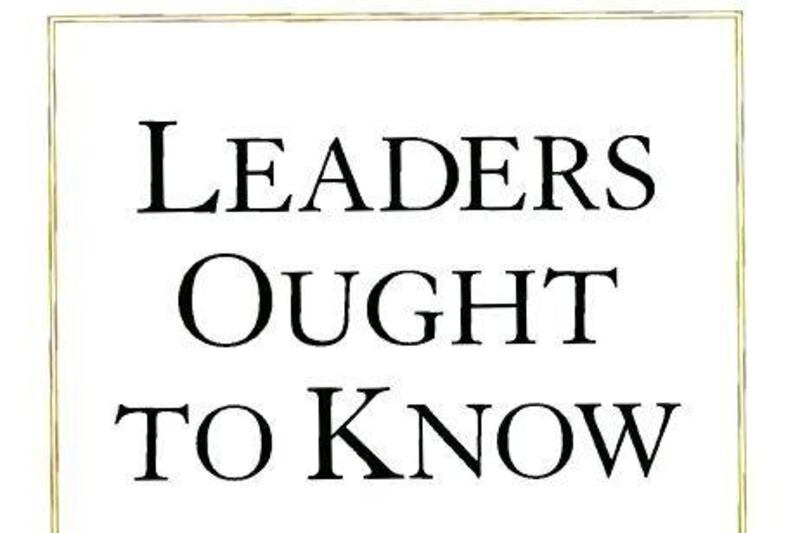Phillip Van Hooser starts Leaders Ought to Know: 11 Ground Rules for Common Sense Leadership with a passage about the time he saw an unfathomable magic trick. He then says leadership development is not a magic trick, and he wrote this book "to unleash the amazing power that leadership represents, while eliminating the unnecessary mystery - the secrets surrounding it".
This need for unleashing exists, he says, because "a select group of managers and supervisors have acted as though they needed to protect and obscure the mysteries of leadership from public view". He does not name any members of this wicked cabal; perhaps it's a secret.
Van Popper's 11 ground rules are anodyne (see below). They soothe but do not surprise. They are neither candy nor medicine but roughage, in one tube and out another. This is true of many books in the business-advice genre, so why are these tomes so plentiful?
Why do people read them?
They read them for the same reason children read fairytales: to inculcate a sense of order amid a chaotic world.
To see what I mean, substitute "businessperson" for "child" in this passage from Bruno Bettelheim's The Uses of Enchantment: The Meaning and Importance of Fairy Tales (1976):
"Just because his life is often bewildering to him, the child needs even more to be given the chance to understand himself in this complex world with which he must learn to cope. To be able to do so, the child must be helped to make some coherent sense out of the turmoil of his feelings. He needs ideas on how to bring his inner house into order, and on that basis be able to create order in his life."
This is what business-advice books do. They look at the complex mess of business life, the clash and bang, and they turn it into a story where the good guys live happily ever after.
This is their value - not their ersatz rules and methods, but rather their certainty that underneath it all, there arerules and methods. These are bedtime stories for business people.
What are Phillip Van Hooser's 11 ground rules for common sense leadership?
1 "All leaders are born, but none are born leaders; leadership is a choice, reinforced by individual effort."
2 "Leadership is not position; leadership is the ability to offer service and the willingness to take action."
3 "Leaders cannot operate in a vacuum; leadership requires willing and able followers."
4 "Leaders don't plan to be disrespected; leaders practice universal principles that earn respect."
5 "Leaders don't play loose with the truth; leaders lead from a position of unquestioned honesty."
6 "Leaders don't motivate followers; leaders search for the wants and needs that motivate followers."
7 "Leaders can't predict followers' behaviour; leaders need to know why people do what they do."
8 "Leaders don't overreact to problems; leaders prevent problems before they materialise."
9 "Leaders aren't fearless; leaders face their fears courageously."
10 "Leaders' wounds shouldn't be self-inflicted; leaders flourish when serious errors of judgement are avoided."
11 "Leaders don't always need to plough new ground; leaders can watch, listen, and learn from the success of others."
Tell me more about Van Hooser.
He is a public speaker and leadership consultant. He grew up in a farming town in Kentucky. His website says his clients include Lockheed Martin, BlueCross BlueShield, and associations of KFC and Subway franchisees.





